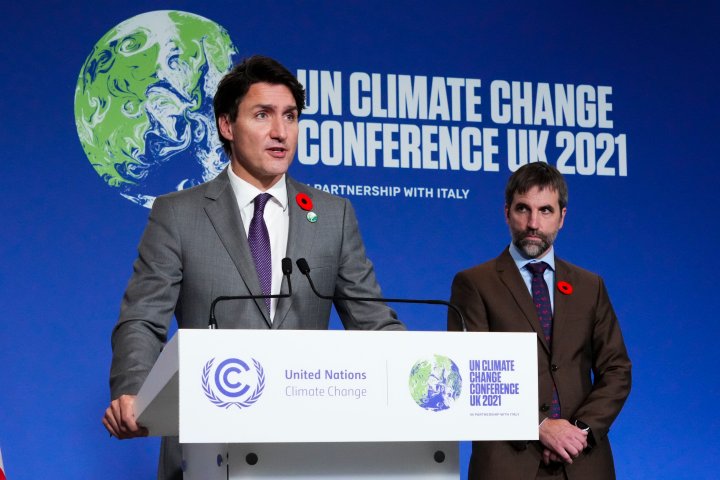Environmental groups and politicians in Canada expressed a combination of disappointment and determination after a last-minute agreement was made at the United Nations climate negotiations on Saturday.
Almost 200 countries agreed to a contentious climate deal aimed at keeping a major target in the fight against global warming, which included a last revision that softened important language concerning coal.
Several countries, notably small island states, expressed dissatisfaction with India’s proposal to “scale down” rather than “phase out” coal power, the single largest source of greenhouse gas emissions, on Saturday.
The Sierra Club’s Canadian chapter said the deal marks a “disappointing end” to the two-week conference in Glasgow, Scotland, known as COP26.
“This final agreement is a small step but not the leap we need,” representatives said in a statement, calling the compromise “on trend with the divisive summit.”
“In the words of David Attenborough … ‘our motivation should not be fear but hope.”’
They and others cited the international goal to limit global warming to 1.5 C above pre-industrial times.
Climate Action Network Canada, which was also in attendance, warned Canadian politicians they will be held to the deal’s pledges.
“We leave Glasgow with renewed conviction that we must fight back against every fraction of a degree of warming, to protect the people and the places we love,” the network said in a Twitter post.
Green Party MP Elizabeth May said in tweet from Scotland that the diluted language on coal marks a move to appease India, China and others.
“The hope of holding to 1.5 degrees is barely alive. But hope is not lost,” she wrote.
The advocates’ views reflected those of many states, as nation after nation complained on the final day of the U.N. talks the agreement did not go far or fast enough. They said, however, that it was better than nothing and provided incremental progress, if not success.
Kathryn Harrison, a political science professor at the University of British Columbia and specializing in environmental and climate change policy, said the commitments show progress but that the globe remains on track for 2.4 C of warming this century.
Nonetheless, the call for more ambitious near-term targets at next year’s conference is “encouraging,” she said.
“It’s also increasingly clear that greater climate finance for developing countries from wealthy, developed countries like Canada will be essential in achieving needed progress,” she said in an email.
The meeting has also sent a strong signal to Canada’s fossil-fuel industry, whose exports Harrison warned are bound to decline after 2030 if countries keep their word on temperature goals.
“COP26 finally called out the elephant in the room with more focus than at any previous COP on fossil fuels as the main cause of climate change,” she said, pointing to oil and gas as well as coal.
Canada has joined more than 20 countries in promising to end subsidies for fossil fuels projects overseas. And the deal itself calls for an eventual end of some coal power and fossil fuel subsidies.
Negotiators from Switzerland and Mexico deemed the coal language change against the rules because it came so late. However, they said they had no choice but to hold their noses and go along with it.
“Our fragile planet is hanging by a thread,” United Nations Secretary-General Antonio Guterres said in a statement. “We are still knocking on the door of climate catastrophe.”
Source_ The Canadian Press











